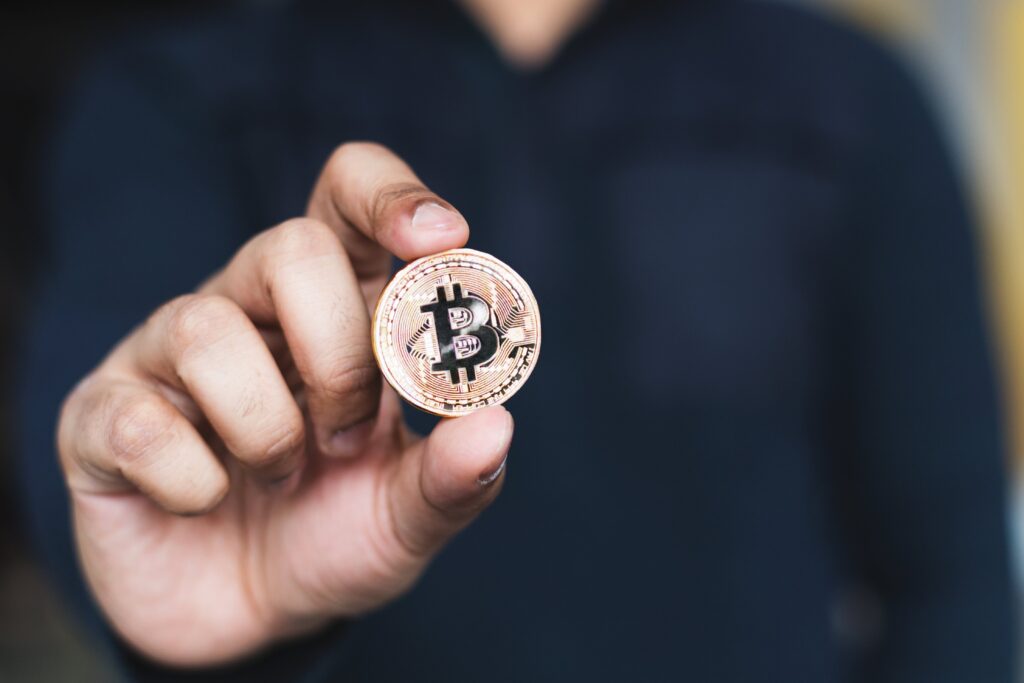Cryptocurrency is no longer just a buzzword thrown around by tech nerds and finance geeks—it’s becoming a major player in the global economy. From buying a coffee with Bitcoin (yes, that’s a thing now) to billion-dollar investments in crypto projects, the world of finance is changing fast.
But what does this mean for the future? Will we all be paying for groceries with Dogecoin? Will banks become a thing of the past? Or is this just another financial fad that will fade away? Let’s break it down.
1. The Rise of Cryptocurrency: A Quick Crash Course

Back in 2009, an anonymous person (or group) called Satoshi Nakamoto introduced Bitcoin (BTC)—a digital currency that promised to work without banks, middlemen, or government control. Since then, thousands of cryptocurrencies have popped up, each claiming to be the next big thing.
Some of the most popular ones include:
- Ethereum (ETH): More than just digital money—it’s like a giant computer that runs apps and smart contracts.
- Stablecoins (USDT, USDC, etc.): The chill cousins of crypto, these are tied to traditional money like the U.S. dollar, so they don’t bounce around in price like a pogo stick.
- Central Bank Digital Currencies (CBDCs): Governments are now making their own digital currencies to keep up with the trend (because, let’s be honest, they don’t want to be left behind).
The rise of crypto signals a major shift—people are moving away from old-school banks and looking for faster, cheaper, and more independent ways to handle their money.
2. How Cryptocurrency is Changing Finance
A. Goodbye, Banks? Hello, DeFi!
Traditional banking can be frustrating—slow transactions, high fees, and, let’s not forget, those awkward conversations with bank tellers about why you need to withdraw your own money.
Enter Decentralized Finance (DeFi)—a financial system that runs on blockchain, cutting out the middlemen (a.k.a banks). With DeFi, you can:
- Earn interest on your savings without a bank.
- Trade assets on decentralized exchanges (DEXs) like Uniswap, where no shady broker takes a cut.
- Take loans without a credit score—just put up some crypto as collateral, and boom, you’ve got cash.
In short, DeFi is like traditional finance but without the paperwork, long wait times, or suspicious fees.
B. Borderless Money: No More Annoying Bank Fees
Ever tried sending money abroad? If so, you know the struggle—high fees, slow transactions, and sometimes, banks just decide your money is “suspicious.”
With crypto, you can:
- Send money anywhere in minutes (without a bank taking a big chunk of it).
- Help the unbanked—about 1.4 billion people worldwide don’t have access to banks, but with crypto, all they need is a smartphone.
- Keep full control over your money—no one can freeze or block your transactions.
Crypto is making global finance smoother, faster, and (most importantly) less annoying.
C. Bitcoin: The “Digital Gold”
Ever noticed how your money seems to lose value over time? (Cough inflation cough). That’s because governments keep printing more of it.
Bitcoin, on the other hand, is limited to 21 million coins—meaning no one can print more of it. This has led many to see it as “digital gold,” a safe place to store value in uncertain times.
When the economy wobbles, people rush to buy gold. Now, they’re doing the same with Bitcoin. Will it replace gold one day? Maybe. But for now, it’s a strong contender for protecting your money from losing its worth.
3. Challenges & Risks: It’s Not All Sunshine and Rainbows
Of course, crypto isn’t perfect. There are still some major issues that need to be tackled.
A. Governments Can’t Decide What to Do With It
Some countries love crypto (Hi, El Salvador!), while others are still figuring out if they should regulate it, tax it, or just ban it (looking at you, China).
The good news? More and more countries are realizing that banning crypto doesn’t work, so clear regulations are on the way.
B. Price Swings That Will Make Your Heart Race
Crypto is famous for its wild price swings. One day, Bitcoin is worth $60,000, the next day, it’s down to $30,000. It’s like the stock market on steroids.
While this is great for traders who love the thrill, it’s not ideal for someone who just wants a stable currency. That’s why stablecoins and CBDCs are gaining popularity—they offer crypto benefits without the rollercoaster ride.
C. Scammers Love Crypto (Sadly)
From phishing scams to Ponzi schemes, crypto has its fair share of bad actors. Some key risks include:
- Hackers stealing funds from exchanges (always store your crypto in a secure wallet!).
- Scam projects promising quick riches (if it sounds too good to be true, it probably is).
- Lost passwords = lost money (there’s no “forgot password” button in crypto).
While security is improving, crypto users still need to be careful and do their research before investing.
4. What’s Next for Cryptocurrency?
A. More Companies Are Jumping In
Big names like Tesla, PayPal, and Visa are already using crypto, and more companies are following. Soon, you might be able to buy your groceries, book a flight, or pay your rent in crypto.
B. Governments Are Making Their Own Digital Currencies
Central Bank Digital Currencies (CBDCs) are the middle ground between crypto and traditional money. Unlike Bitcoin, CBDCs are government-controlled—which means they come with regulations but also offer security and stability.
Will CBDCs replace crypto? Probably not, but they’ll likely coexist, offering people more financial options.
C. AI + Crypto = The Future?
Artificial Intelligence (AI) is making crypto smarter by:
- Detecting fraud in transactions.
- Automating trading strategies for better investments.
- Improving smart contracts to make transactions even smoother.
The combination of AI and blockchain could revolutionize finance even further.
Final Thoughts: A Financial Revolution in the Making
Cryptocurrency isn’t just some passing trend—it’s changing the way we think about money.
- Banks? Maybe less important in the future.
- International payments? Faster and cheaper.
- Inflation? Bitcoin and stablecoins might help.
Of course, challenges like regulations, security, and volatility still exist, but the future of money is shifting.
So, will we all be buying burgers with Bitcoin in 10 years? Maybe. But one thing’s for sure—crypto is here to stay, and finance will never be the same again.

